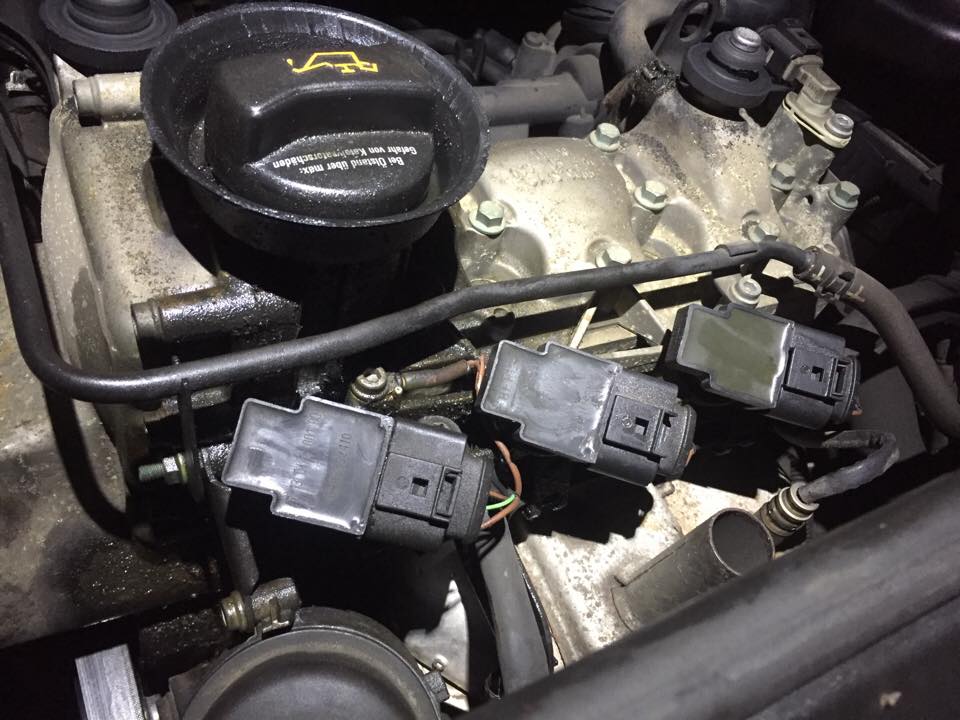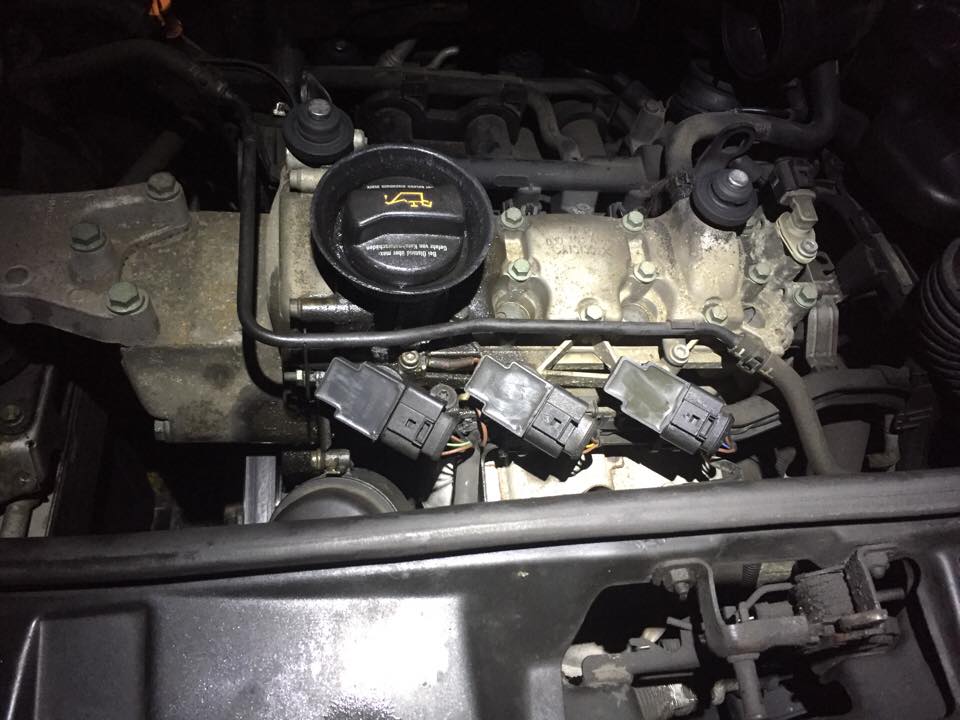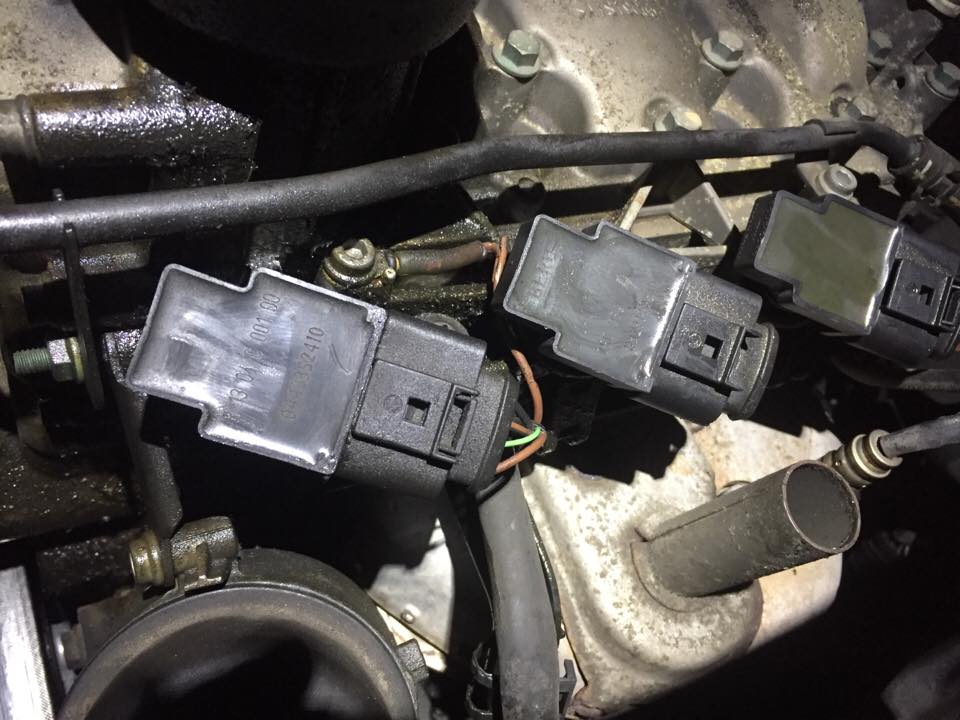html Skoda Fabia 1.2 12v Engine Failing? Fix It (Without Breaking the Bank!) Is Your Skoda Fabia 1.2 12v Engine Failing? Don't Panic! This Guide Saves You Thousands (and Time!) Owning a Skoda Fabia 1.2 12v is generally a cost-effective way to get around. However, like any car, these engines can sometimes develop issues. If you suspect your engine is failing, it's natural to feel concerned about expensive repairs. This comprehensive guide will walk you through common problems, help you diagnose them, and provide practical advice to avoid unnecessary costs. We'll explore potential solutions, empowering you to make informed decisions and potentially save a significant amount of money. Common Symptoms of Skoda Fabia 1.2 12v Engine Problems Before diving into solutions, it's crucial to recognize the signs of trouble. Here are some common symptoms indicating potential issues with your Skoda Fabia 1.2 12v engine: Loss of Power: Does your car feel sluggish, struggle to accelerate, or hesitate when you press the gas pedal? Engine Misfires: Are you experiencing a rough idle, especially when the engine is cold? This can manifest as a jerking sensation while driving. Unusual Noises: Listen for knocking, rattling, or ticking sounds, especially during startup or acceleration. Increased Oil Consumption: Are you constantly topping up your oil? Excessive oil consumption can indicate internal engine wear or leaks. Check Engine Light: The dreaded "Check Engine" light is a clear indicator of a problem. Get the car scanned for fault codes to understand the issue. (See: How to Use an OBD2 Scanner - Autotrader) Poor Fuel Economy: Have you noticed a significant drop in your car's fuel efficiency? White or Blue Smoke from the Exhaust: White smoke can indicate coolant burning, while blue smoke often signifies oil burning. Black smoke usually points towards a fuel issue. Understanding the Key Culprits: Common Issues and Their Causes Several factors can contribute to engine problems in the Skoda Fabia 1.2 12v. Understanding these common issues is the first step toward a solution. Camshaft Issues The camshaft is a critical component that controls the opening and closing of the engine's valves. Wear and tear on the camshaft, along with related components like the camshaft followers and lifters, can lead to performance issues. This is often exacerbated by infrequent oil changes or using the wrong type of oil. Symptoms include misfires, reduced power, and ticking noises. Timing Chain Problems The 1.2 12v engine often uses a timing chain to synchronize the crankshaft and camshaft. While timing chains are generally more durable than timing belts, they can still stretch or fail over time, especially if oil maintenance is neglected. A stretched or broken timing chain can cause severe engine damage. The symptoms include a rattling noise, especially on startup, and the engine potentially failing to start or running very poorly. Valve Problems Carbon buildup on the valves can prevent them from sealing properly, leading to misfires and loss of compression. This is a common issue in many engines and can be caused by a variety of factors, including poor fuel quality and driving style. The symptoms often include rough idling, reduced power, and difficulty starting. Ignition Coil and Spark Plug Issues Faulty ignition coils or worn-out spark plugs can cause misfires and poor engine performance. These components are relatively inexpensive to replace and are often a first point of troubleshooting. The symptoms include a rough idle, hesitation, and reduced power. Diagnosing the Problem: A Step-by-Step Approach Before you start replacing parts, it's essential to accurately diagnose the problem. Here's a systematic approach: Check the Basics: Ensure your car has enough oil and coolant. Check for any obvious leaks. Use an OBD2 Scanner: Connect an OBD2 scanner to your car's diagnostic port (usually under the dashboard) to read any fault codes. These codes provide valuable clues about the problem. (See: Example OBD2 Scanner ) Inspect Spark Plugs and Ignition Coils: Remove the spark plugs and inspect them for wear, fouling, or damage. Check the ignition coils for cracks or other signs of damage. Listen for Unusual Noises: Carefully listen to the engine for any unusual noises, such as ticking, knocking, or rattling. Perform a Compression Test (If Possible): A compression test measures the engine's ability to seal the cylinders. This can help identify issues with the valves, piston rings, or cylinder head. This often requires specialist equipment. Consult a Qualified Mechanic: If you're not comfortable performing any of these steps, or if the problem is complex, take your car to a trusted mechanic for a professional diagnosis. Repair vs. Replacement: Making the Right Decision Once you've diagnosed the problem, you'll need to decide whether to repair the engine or replace it. This decision depends on the severity of the damage and the cost of the repairs. Minor Repairs: If the problem is relatively minor, such as replacing spark plugs, ignition coils, or a sensor, repair is usually the most cost-effective option. Major Repairs: If the engine requires significant repairs, such as replacing the camshaft, timing chain, or cylinder head, consider the age and value of your car. The cost of these repairs can quickly add up. Engine Replacement: In some cases, especially if the engine has suffered catastrophic damage, engine replacement might be the best option. However, carefully weigh the cost of a replacement engine against the value of your car. Consider a used engine in good condition to save costs, or even a remanufactured engine for increased reliability. Research reputable engine suppliers in your area. (See: Ebay Search for Skoda Fabia 1.2 12v Engines ) Preventative Maintenance: Keeping Your Engine Healthy The best way to avoid expensive engine repairs is to practice preventative maintenance. Here are some key tips: Follow the Service Schedule: Adhere to the manufacturer's recommended service intervals for oil changes, spark plug replacement, and other maintenance tasks. Use High-Quality Oil and Filters: Use the correct type of oil and a high-quality oil filter. Regular oil changes are crucial for engine health. Check Coolant Levels Regularly: Ensure your car has the correct coolant level and that there are no leaks. Address Problems Promptly: Don't ignore warning signs. Address any engine issues as soon as they arise to prevent them from becoming more serious and costly. Drive Responsibly: Avoid harsh acceleration and deceleration, which can put extra stress on the engine. Conclusion: Empowering You to Take Action Facing engine problems in your Skoda Fabia 1.2 12v can be stressful. However, by understanding the common issues, learning how to diagnose them, and making informed decisions, you can significantly reduce the cost and hassle of repairs. This guide provides the knowledge you need to take control of the situation, save money, and keep your Fabia running smoothly for years to come. Remember, preventative maintenance is key, and don't hesitate to seek professional help when needed. By taking proactive steps, you can ensure your Skoda Fabia 1.2 12v remains a reliable and affordable mode of transportation.
Is Your Skoda Fabia 1.2 12V Engine Failing? Don'T Panic! This Guide Saves You Thousands (And Time!)
```html Skoda Fabia 1.2 12v Engine Failing? Fix It (Without Breaking the Bank!) Is Your Skoda Fabia 1.2 12v Engine Failing? Don't Panic! This Guide...




